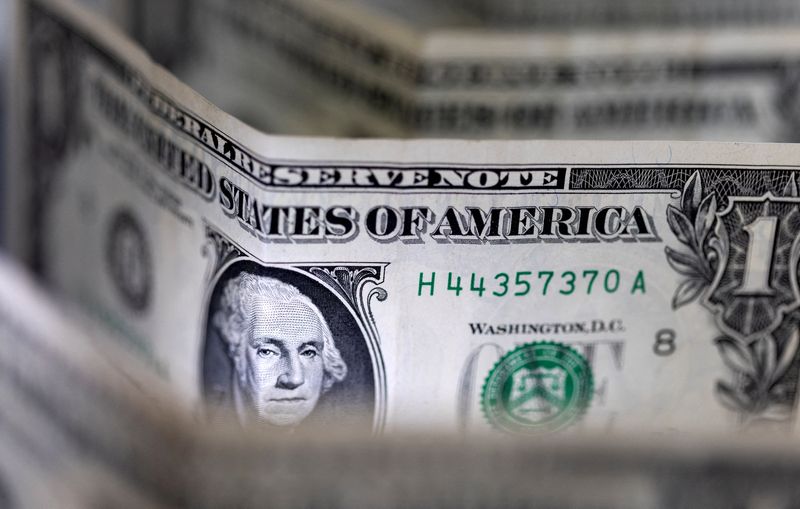Dollar Edges Lower; Remains Near Record Levels on Safe Haven Flows
2022.07.04 10:26

By Peter Nurse
Investing.com – The U.S. dollar edged lower in early European trade Monday, but remained in demand as a safe haven due to worries about slowing global growth while a U.S. holiday is likely to limit volatility.
At 2:55 AM ET (0655 GMT), the Dollar Index, which tracks the greenback against a basket of six other currencies, dropped 0.1% to 104.810, not far below last month’s two-decade high of 105.790.
The Eurozone, the U.K., Japan, South Korea, Australia, and Canada as well as the U.S. are likely to fall into recession over the next 12 months, analysts at Nomura said in a note, as central banks looking to restore their inflation-control credibility are likely to err on the side of tightening policy too much.
This view has been supported by recent economic data, with U.S. consumer spending, for example, growing far less than expected in May while the Atlanta Federal Reserve’s much-watched GDPNow forecast slid to an annualized minus 2.1% for the second quarter.
Despite this, Fed Chair Jerome Powell reiterated last week the Fed’s resolution to tame red hot inflation.
“The dollar should continue to count on a rather solid floor in the third quarter thanks to the Fed’s front-loaded rate hikes and a still challenging environment for global risk assets due to tighter liquidity and fears of a global slowdown,” said analysts at ING, in a note.
Investors will be closely watching Friday’s nonfarm payrolls report for how the labor market is performing, given the Fed’s inflation/employment mandate, while Wednesday’s minutes from the central bank’s June meeting will provide some insight into how policymakers see the future path of interest rates.
The market has priced in a hike of 75 basis points from the Fed this month after the U.S. central bank delivered such an increase in June, its largest hike since 1994.
EUR/USD edged 0.1% higher to 1.0434, only marginally above May’s five-year low of 1.0349 and not helped by Germany reporting its first monthly trade deficit since 1991 after exports unexpectedly fell in May.
The deficit of 1 billion euros ($1 billion) suggests Germany’s export-driven economy is feeling the full impact of Russia’s invasion of Ukraine and China’s COVID-related lockdowns and the associated damage to international supply chains.
GBP/USD traded 0.2% higher at 1.2114, after hitting a two-week low of 1.1976 on Friday, USD/JPY rose 0.1% to 135.37, while AUD/USD climbed 0.5% to 0.6849.
Australia’s central bank meets on Tuesday and is widely expected to raise interest rates in an attempt to curb soaring inflation.
A survey by Bloomberg detailed that all but one of 26 economists expect the Reserve Bank of Australia to raise its cash target rate by half a percentage point on Tuesday to 1.35%, to a level not seen since May 2019.








